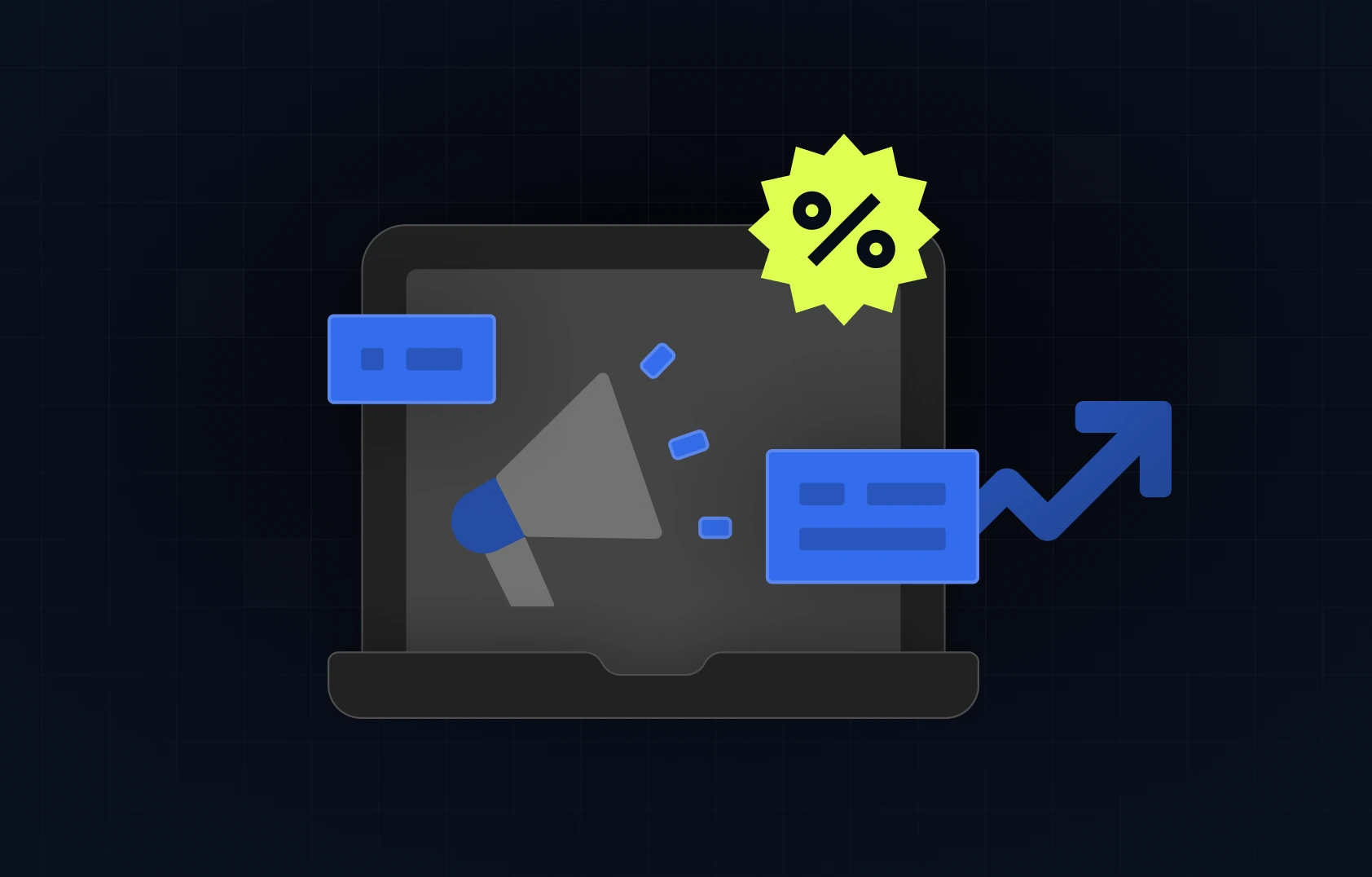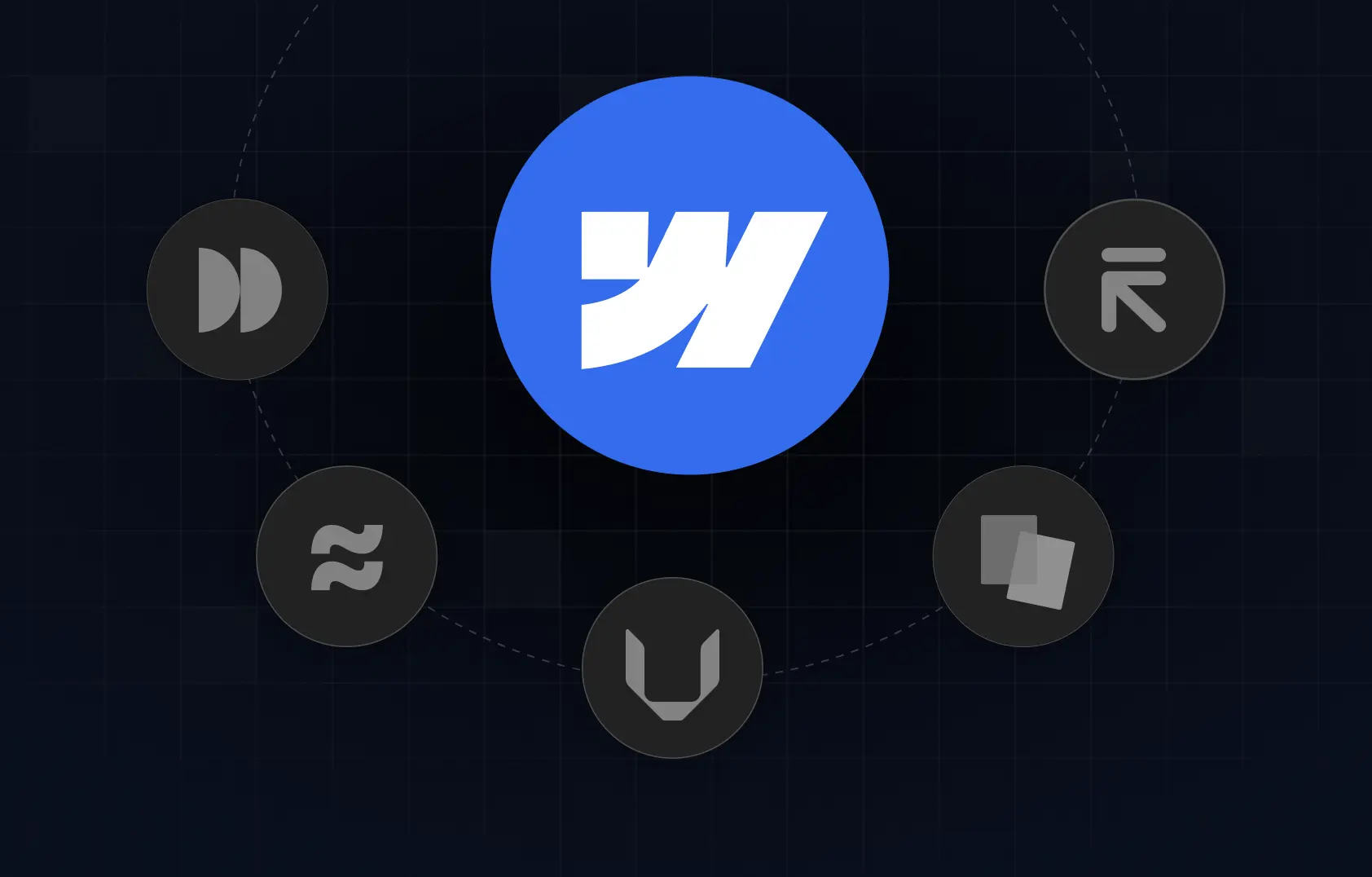Table of content
Summary:
Wix is still one of the most popular website builders, but its limitations leave many users exploring alternatives.
- Wix strengths - beginner-friendly, fast setup, wide template library, AI-assisted tools.
- Wix drawbacks - slower performance, limited SEO/customization, template lock-in, hidden costs.
- Many users outgrow Wix when they need more flexibility, scalability, or professional-grade features.
- Top Wix alternatives are Webflow, Squarespace, WordPress, Shopify, and Weebly.
- When choosing the best fit, it’s important to consider ease of use, budget, scalability, and design needs.
- All platforms come with extra costs (apps, plugins, transaction fees), so long-term planning is key.
- If you’ve outgrown Wix, Webflow often offers the best balance of design control, scalability, and professional output.
Best Wix alternatives in 2026 - platforms worth switching to
There’s no denying that Wix has many strengths - after all, it reached over 258 million users in 2024 for a reason. But like any platform, it isn’t perfect, and it’s especially true when it comes to its scalability, SEO flexibility, and advanced customization. It’s a web builder suitable for many projects, but once you need more power, you start looking around for better-suited Wix alternatives. If you’re at the start of your search, we’ve prepared a detailed list to ease your task.
Is Wix still the best?
Wix can be a great option for beginners or people who want a website fast without learning to code. Moreover, Wix doesn’t stop improving its tools as time passes, including AI-assisted features, image editing, template variety, and so on. However, there are elements Wix struggles with, such as:
- Performance/speed - many users complain that Wix sites can be slow, especially with complex templates and lots of content
- Advanced customizations - when you need higher controls, such as highly optimized SEO setups or custom code, other platforms often outperform.
- Template lock-in - once a template is live or the site is built, switching templates/layouts is often painful
- Hidden costs - costs climb rapidly once you add premium features and paid integrations, or eCommerce tools.
These are some of the main reasons users start looking for more flexible platforms like Webflow, WordPress, or Shopify.
Best alternatives to Wix at a glance
Is there a better alternative to Wix? Although it’s still one of the most popular builders, we’ve established that Wix comes with a fair share of disadvantages. For some, these drawbacks are enough reasons to start searching elsewhere.
Before we dive into the full breakdown, here’s a sneak peek at some of the strongest contenders when it comes to Wix alternatives. Think of this as a quick cheat sheet to get a sense of who stands out, where, and why, so you’ll know which ones to explore in detail as you scroll down.
- Design-first approach → Webflow, Squarespace
- Scalability & flexibility → Webflow, WordPress
- SEO performance → Webflow, WordPress
- Simplicity & ease of use → Squarespace, Weebly
- Portfolio & creatives → Webflow, Squarespace
- Budget-friendly → Hostinger, Weebly
- Community & integrations → WordPress, Shopify
- E-commerce focus → Shopify, Squarespace
Webflow - the professional Wix alternative for designers & agencies
Many of those who want to switch from Wix intend to do so due to Wix’s limitations regarding customization and design control. So, naturally, they look for a similar drag-and-drop editor platform able to provide them with these elements - and in past years, Weblow has proven to be one of the best Wix alternatives.
As a no-code website builder that offers an amazing level of design precision, Webflow is highly suitable for those working on more complex and sophisticated custom web experiences. While Wix comes with better built-in marketing tools, lower pricing plans, and higher ease of use, Webflow’s strength is in unmatched design flexibility and reusable elements that increase development speed and simplify maintenance.
Switching to Webflow is the best option if you’re looking for:
- Faster builds - Webflow’s visual platform speeds up development, which can be a lifesaver if you need to launch sooner.
- Clean code - behind the visuals, Webflow outputs well-structured, SEO-friendly code.
- Everything in one place - unlike WordPress, Webflow is a web builder that comes with built-in tools, not endless plugins.
- Custom CMS - Webflow’s CMS allows you to set up a content system that’s easy for clients (read: non-designers) to manage on their own.
- Safe hosting - SSL and secure servers keep your site and data protected.
- Easy edits - making updates and tweaks is fairly simple.
- Flexible pricing options - whatever you need, chances are Webflow already has a plan for that.
- SEO-ready platform - with Webflow SEO features, you can easily control all the basics to rank better.
- More freedom - important when you want design flexibility, custom animations, user-centered design, and CMS power all without hand-coding everything.
Although there is a lot of talk about Webflow’s steeper learning curve, keep in mind that once you get the hang of it, building and editing in Webflow truly starts to feel intuitive.
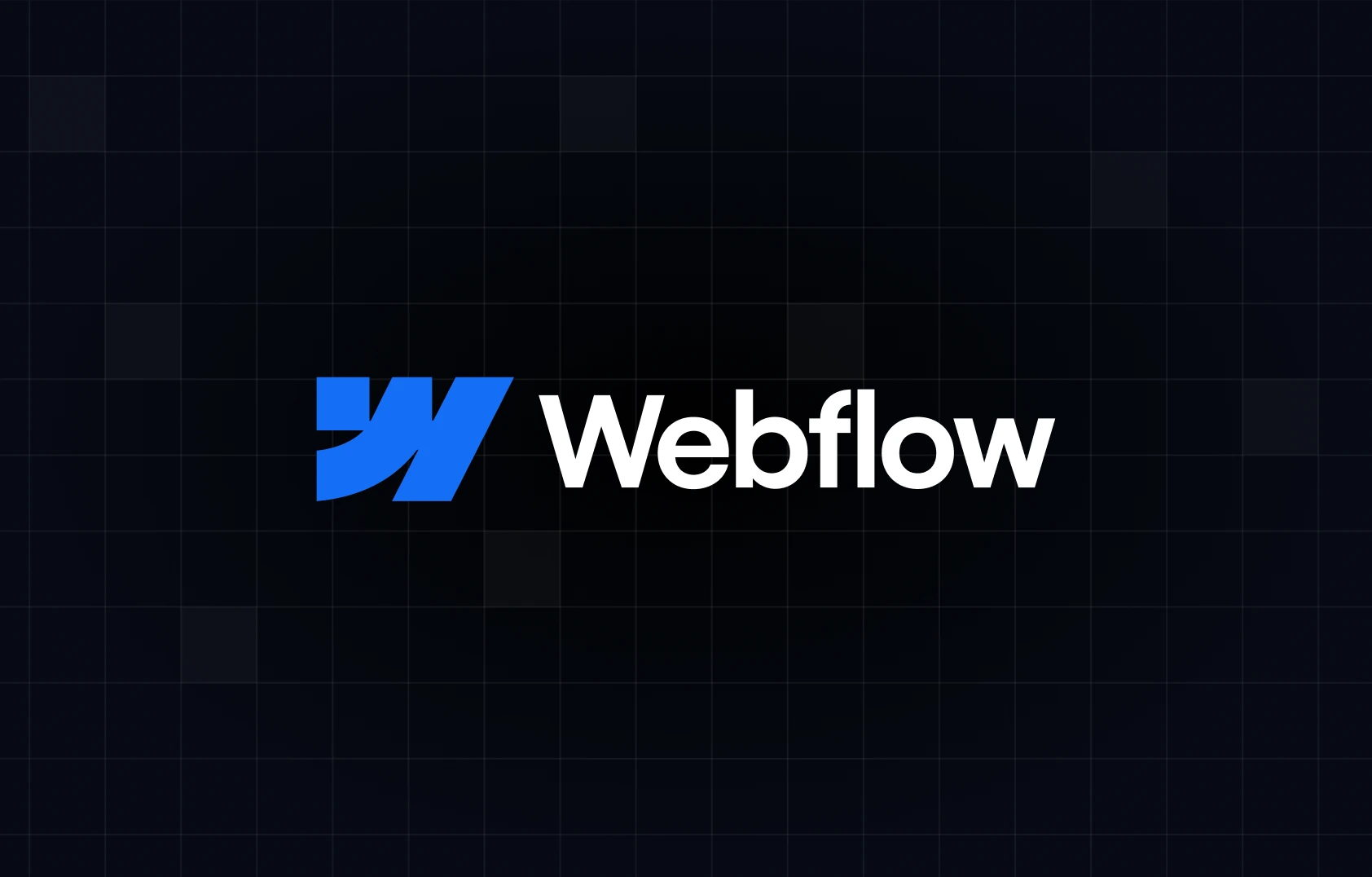
Other suitable alternatives to Wix
Webflow is the best overall alternative to Wix, but even as Webflow experts, we must admit that it doesn’t mean it’s the only platform with something to offer. Moreover, based on your specific goals and needs, some other platform may be a better choice - you’d just need to forget about the level of customization and flexibility you can get with built-in features. Therefore, here are some of the web builders we consider worth mentioning.
Squarespace for professional sites without the hassle.
Squarespace is another all-in-one builder that comes with no coding required. It offers clean templates that are more customizable than Wix’s and an easy-to-use editor. As with Wix, you’ll also be provided with built-in marketing tools, and it’s followed by secure hosting and solid e-commerce features. Overall, it’s more design-focused than Wix, which makes it a good option for small business owners, creatives, online shops, and content creators.
When it comes to Weflow vs. Squarespace, Squarespace is more beginner-friendly, but Webflow gives you far more design freedom, not to mention custom animations and a powerful CMS. It’s better for businesses and teams that want full creative control.
WordPress for content-heavy sites
There are reasons why WordPress is the world’s most popular open-source CMS, and many of them revolve around its flexibility. WP provides users with a huge library of themes and plugins. However, it’s also strong in SEO, content management, and, not to forget, scalability. Since it was originally built for blogs, it’s a natural choice for bloggers. However, freelancers, small businesses, and mid-sized companies can also benefit from this web builder.
That being said, it does come with a few drawbacks. With WP, you’re responsible for updates and maintenance. Not only that, but the costs can rise as your site grows and evolves. Webflow, on the other hand, gives you similar control and flexibility without these headaches. When you compare Webflow and WordPress, it’s clear that Webflow makes it easier to build, manage, and scale a professional website.
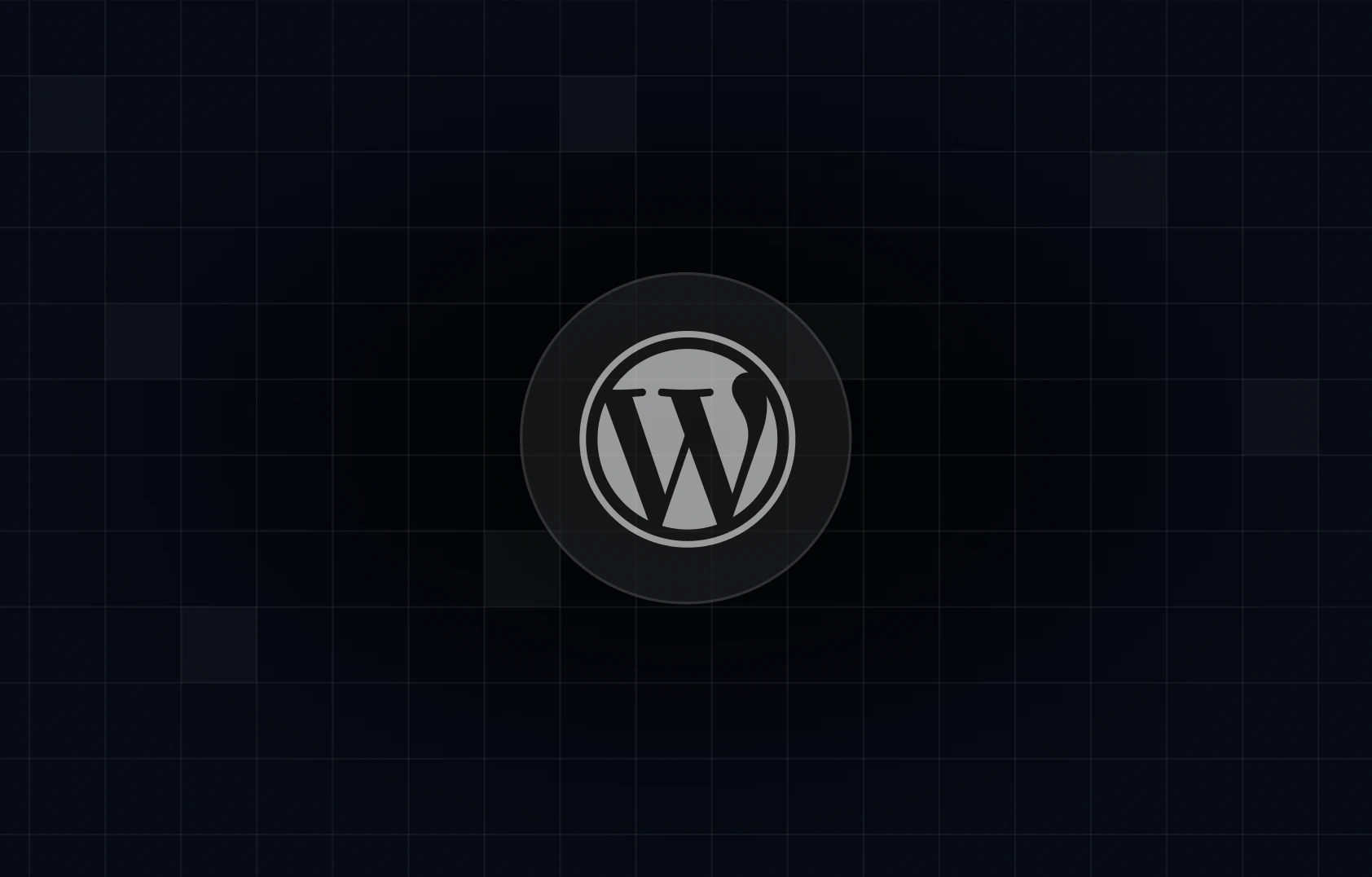
Shopify for e-commerce sites
Everyone and their dog knows that Shopify is the unrivaled platform when it comes to e-commerce. While you can build an online store with Wix, Shopify has more to offer. Simply put, it provides you with all the e-commerce tools you need for inventory and order management, and payment processing. The best part? It can scale well as your business grows.
While Wix works for any website type and Shopify focuses only on online stores, Webflow sits right in the middle. It gives you the creative freedom to design fully custom websites like Wix, and the professional structure and scalability like Shopify. However, unlike Shopify, its efforts extend beyond the e-commerce world.
Weebly for a quick setup for small businesses
Which free website builder is the easiest? Well, it’s probably still Wix, but Weebly doesn’t stay far behind. It’s a straightforward (not to mention budget-friendly) website builder that’s best suited for beginners and small businesses who want to get online quickly. Its drag-and-drop editor is easy to use, and it comes with responsive templates, basic SEO tools, and built-in e-commerce features. That makes it a practical choice for small shops and service providers who want a no-frills setup.
Compared to Webflow, both Wix and Weebly are easier to start with, but they’re more limited in what you can create. Neither Wix nor Weebly offers the full creative freedom, advanced functionality, or scalable CMS that Webflow provides.
How to choose the best Wix alternative for your needs
All of the aforementioned platforms are highly popular among businesses and individuals. However, in order to pick the right one for yourself, you need to look into what each of them provides and how it aligns with your objectives. To keep things simple, we’ve decided to make a table that will clearly show what each unique web builder can offer - and when it is the best choice.
What real users say about Wix alternatives
Discussions on Reddit and web design forums reveal some clear trends in how people compare Wix to its competitors. When summed up, you get something like this:
- WordPress for control and scalability - many users highlight WordPress as the best choice if you want long-term flexibility.
- Webflow for design freedom and clean code - designers often mention Webflow’s precise styling and professional output. As one comment noted:
“Webflow is much more granular. It’s far better for bespoke projects that you could build from scratch, providing you have some CSS knowledge. Wix is useful to make a generic site quickly, but the advantages stop there.” (r/webflow)
- Squarespace for simplicity and aesthetics - users appreciate its clean templates and ease of use.
- Shopify for e-commerce - for selling products, Shopify is the top recommendation. Users admit it’s pricier, but also more powerful.
Hidden costs and trade-offs to keep in mind
Every platform looks great on the surface, but there are always trade-offs worth considering. Shopify, for example, makes selling easy and profitable. However, you need to keep an eye on transaction fees and app add-ons, which can quickly raise your monthly bill.
WordPress is another example that shows that nothing is as easy (or cheap) as it seems. While WP itself is free, reliable hosting, premium themes, and essential plugins can add up fast. Even “budget-friendly” builders may charge extra for certain features, so it’s important to read all the fine print before committing to a platform. Not only that, but always keep in mind your long-term needs, not just the starting price tag.
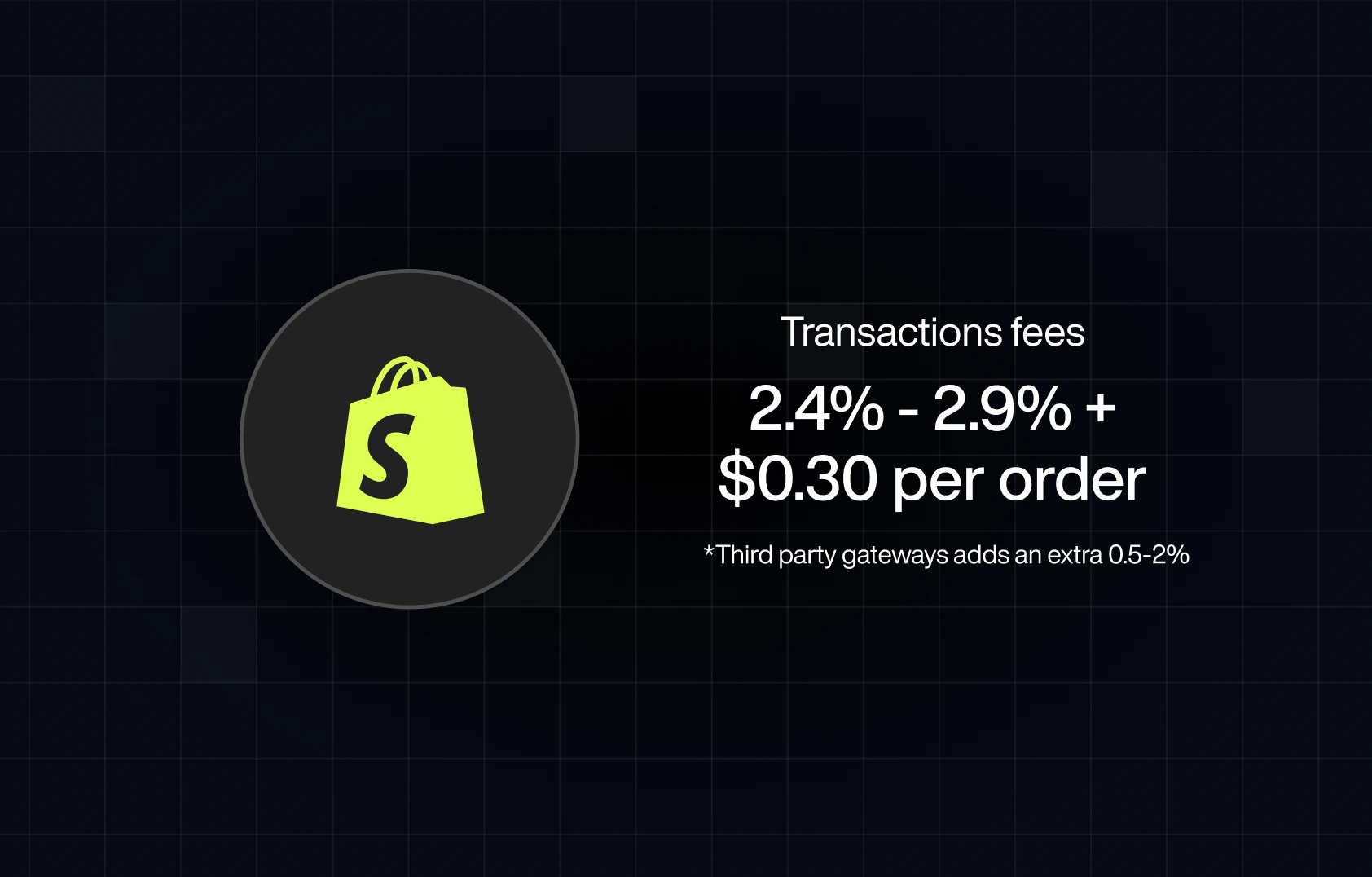
FAQ about Wix alternatives
Is Squarespace better than Wix?
Squarespace is more design-focused, and Wix is more suitable for beginners and hobby sites. The better option depends on whether you value design control or ease of use.
Which Wix alternative is cheapest?
Weebly and Hostinger usually have the lowest-cost plans. Wix and Squarespace are mid-range, while Shopify and Webflow pricing can get pricy, depending on your needs.
Can I migrate from Wix to WordPress easily?
Not directly. Wix doesn’t offer an export option, so you’ll need to manually move content or use third-party tools. It can be time-consuming, but it’s doable.
Is Webflow too hard for beginners?
Webflow has a learning curve compared to Wix or Squarespace. However, at the same time, it’s much more powerful once you get the hang of it.
Is Wix an Israeli company?
Yes. Wix was founded in 2006 in Tel Aviv, Israel, and its headquarters are still there. Today, it’s a global company with offices around the world.
Why Webflow is the smart(est) upgrade from Wix
Wix is great for getting started, but once you want more design control, its limitations start showing. With Webflow, on the other hand, you’re not stuck inside template boundaries or bound by third-party plugins. It’s an all-in-one solution that provides you with the highest possible design freedom without writing a single line of code. On top of that, you avoid the maintenance hassles and the design restrictions other builders may have.
If you’ve outgrown Wix and need a platform that gives you creative freedom and room to scale, Webflow is the natural upgrade. And if you’re looking for Webflow experts who can turn that vision into a high-performing site, reach out to Devolfs - we’ll help power up your project.





%201.svg)



